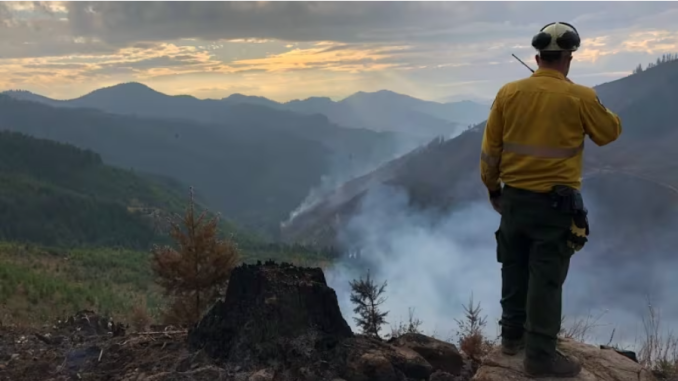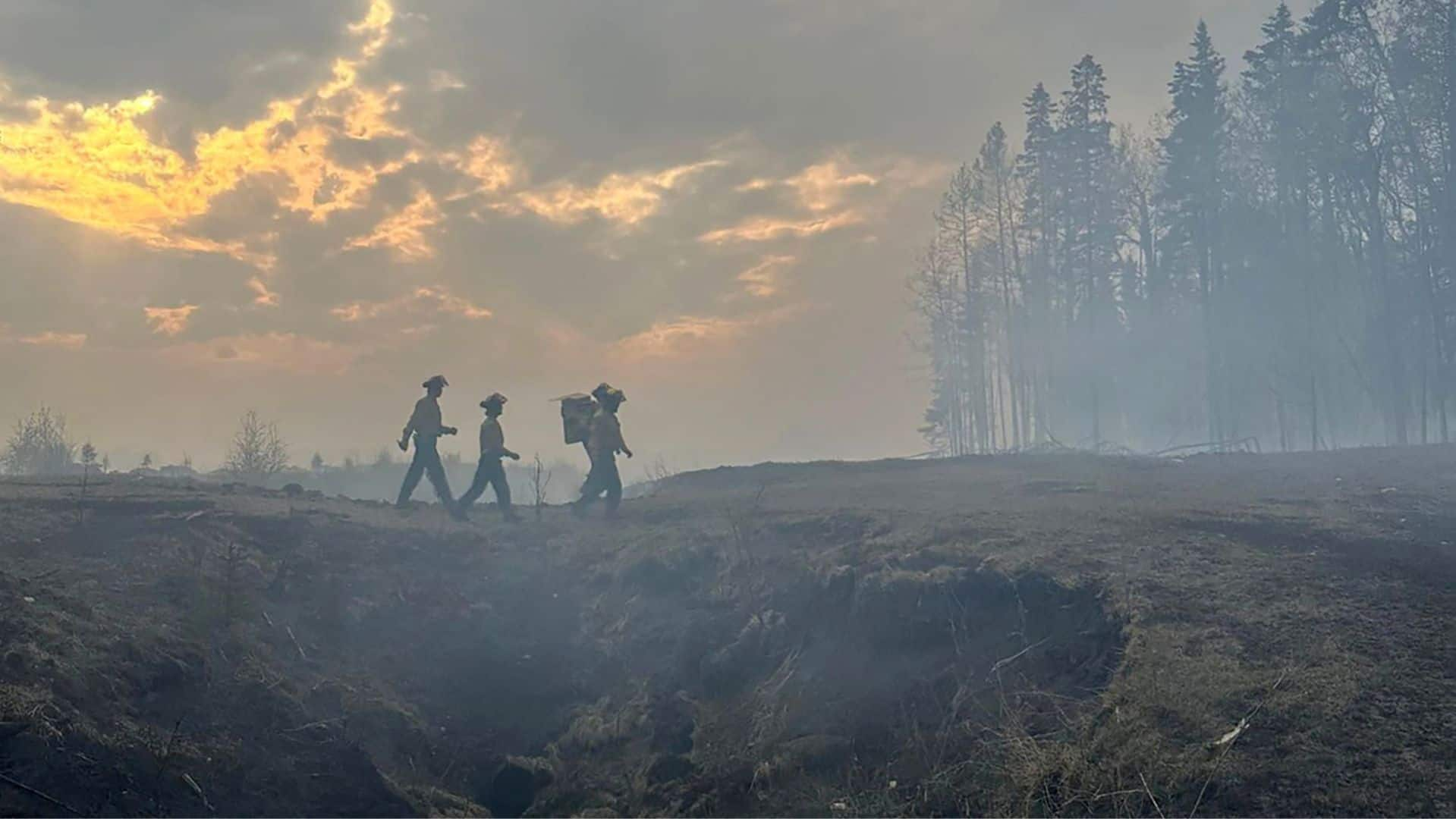
It could take months to bring the flames under control, cautions wildfire officer

Wallis Snowdon · CBC News · Posted: May 17, 2023 10:39 AM MDT | Last Updated: 2 hours ago

Alberta’s unprecedented wildfire crisis threatens to drag on through the summer months.
As of Wednesday morning, 96 wildfires were burning across the province. Of the 91 fires burning inside Alberta’s forest protection areas, 27 are classified as out of control.
Firefighters are bracing for a long, gruelling season.
“Given the amount of fire we’re currently seeing on the landscape, it will be months before all these fires are brought under control, unless we get a significant shift in the weather that brings a lot of moisture,” Alberta Wildfire information officer Josee St-Onge said Wednesday.
“Given the sheer number of fires we’re seeing, it’s going to be a long battle.”
A volatile start to this year’s wildfire season has seen more than 480 fires to date. More than 694,000 hectares of land have been destroyed. The fires have consumed homes and businesses and forced entire communities to be evacuated.
As of Tuesday afternoon, more than 19,500 people remained out of their homes.
Some 2,500 firefighters are currently fighting the fires — 1,600 from Alberta Wildfire, and 900 others from the Canadian Armed Forces, other provinces and the United States.
Another 61 firefighters arrived Tuesday from Ontario, with 21 expected to arrive from New Brunswick on Wednesday.
St-Onge said as fires pick up in other regions, some outside teams brought into Alberta will likely need to return home.
As the crisis drags on, more help will be needed. The emergency will exhaust current resources and the province will have to bring in more crews from other jurisdictions.
“It’s no doubt that it’s going to be a challenging summer and that we will have to look at other sources for help,” St-Onge said.
“We’re hoping for some help from from the weather certainly, but it it could be a situation that we see for the rest of the summer.”
Challenging conditions
Hot, dry and windy conditions are expected to continue throughout Western Canada, potentially creating more intense and unpredictable fires through the Victoria Day weekend.
Firefighters in Alberta have battled heat and tinder-dry conditions. Shifting winds this week have accelerated fire growth, driving flames closer to some communities.
Peat found in muskeg is also challenging firefighters, acting as fuel that makes some fires difficult to extinguish and could keep some of them smouldering through winter.
Marieke deRoos, a spokesperson for the Canadian Interagency Forest Fire Centre, which helps provinces and territories share firefighting resources, said the demand on fire crews is escalating across the country.
With resources stretched increasingly thin, other countries not in the midst of their fire seasons are being asked to dispatch aid to Alberta, she said.
“We have turned to our partners down south in the U.S. who have already deployed resources to Alberta, and we’re currently investigating other options from our other partners of New Zealand, Australia, Mexico and South Africa.”
The fire danger is extreme in northern Alberta with temperatures expected to increase again toward the end of this week.
Smoke has spread south across the province in recent days, clouding visibility, aggravating health concerns and acting as a constant reminder of the crisis unfolding in communities. Special air quality statements are in place for much of Alberta.
A detailed assessment of the losses has not been completed but reports of burned homes, acreages and business continue to pour in from across central and northern Alberta.
- Wildfire smoke blankets province as brisk winds accelerate Alberta’s fire risk
- Firefighting needs ‘all hands on deck’ to keep up with wildfires
As the threat subsides in some communities, evacuees are slowly returning home. On Tuesday, evacuation orders were partially lifted allowing for a staggered re-entry in Brazeau County, including Drayton Valley, which is home to around 7,000 residents.
Municipal government officials will deliver an update on the wildfire situation around the community of Drayton Valley at 1:30 p.m. MT. Watch the news conference here.

Drayton Valley wildfire update
1 hour
LIVE IN
1 hourAlberta officials give an update about the current wildfire situation around Drayton Valley.
In northwest Alberta, the communities of Rainbow Lake and Chateh remain under threat and hundreds of residents of the neighbouring communities have fled.
David Morin, a firefighter who has been working in the area, echoed the call for more aid.
In terms of resources, Alberta will need “the whole kitchen sink” to tame the disaster, he said.
“We’re going to need more people, we’re going to need more airplanes. We’re going to need more everything, just more and more and more, until we can get the situation under control.
Morin expects it will be a long, difficult wildfire season.
“I’ve never seen it this dry this early and the winds have been incredible,” he said.
“Because it’s so dry and it’s so early, this is going to be a long summer for us.”

Western Canada wildfires push people, resources to the limit
16 hours ago
Duration3:18Hundreds of firefighters from across Canada are helping to combat Alberta’s raging wildfires, just as B.C.’s worsening wildfire situation starts siphoning resources.
ABOUT THE AUTHOR

Reporter
Wallis Snowdon is a journalist with CBC Edmonton focused on bringing stories to the website and the airwaves. Originally from New Brunswick, Wallis has reported in communities across Canada, from Halifax to Fort McMurray. She previously worked as a digital and current affairs producer with CBC Radio in Edmonton. Share your stories with Wallis at wallis.snowdon@cbc.ca.
